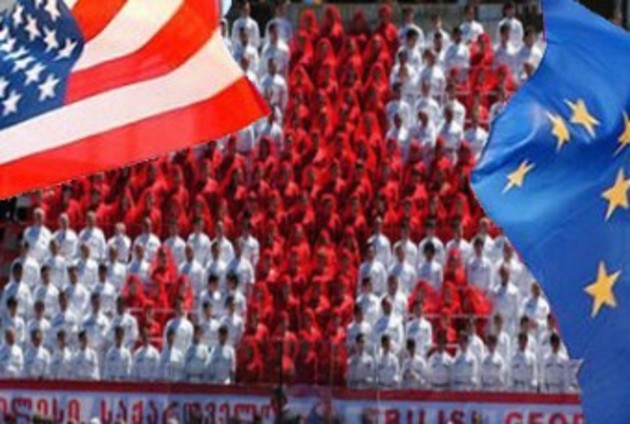Whom do the Georgian elites rely on?

A new era is beginning in Georgian politics, with the arrival of Russian billionaire Binzina Ivanishvili. Journalists and experts have started discourses on the businessman’s political pro-Russian or pro-Western orientation.
Ivanishvili earned $5.5 billion in Russia and would obviously be a pro-Russian politician. But his first steps do not demonstrate it. He plans to form alliances with two pro-Western parties – the Republicans of the Berdzenishvili brothers and the Free Democrats of Irakly Alasania.
Even if Ivanishvili is a pro-Russian politician, he cannot form such a force to oppose all political elites, despite his multi-billion-dollar assets. Georgian political parties range from ultra left to ultra right, or “hostile right” and “liberal fundamentalists” as they are called in Georgia. But there are no parties speaking for rapprochement with Russia.
The attitude towards Russia Prime Minister Vladimir Putin’s article on the formation of a Eurasian Union has become a touchstone for the case. Georgia neglected the article. Not a single political party made a statement, a comment or a proposal to analyze the processes on a Eurasian space. The only response was made by Georgian President Mikheil Saakashvili, who called the Eurasian Union “a wild idea of Russian nationalists”. In this case silence means “yes”, despite disputes on development of the state.
It seems obvious that there are no pro-Russian elites in Georgia. Hopes for rapprochement between Georgia and Russia were lost back in the 1990s. The five-day war in August 2008 put a full stop to the process. All Georgian political parties talk about occupation of Abkhazia and South Ossetia.
The economic embargo Russia imposed forced part of the elites to switch to other markets. They have no hopes for the Russian market. Indifference to the call of Gennady Onishenko, head of the Federal Service for Oversight of Consumer Protection and Welfare, to renew talks on return of Georgian products to the Russian market, proves the point.
But lack of pro-Russian elites does not mean they are all pro-Western. There are authoritative groups willing to see a neutral Georgia or even seeing an equal threat from Western and Russian ideas. The most active elites are closely connected to the West, the US and European states. The Labour Party of Shalva Natelashvili, the National Forum of Gubaz Sanikidze and Kakha Shartava call for neutral status. No wonder the New Rights, Republicans and Christian Democrats support the parliamentary model of state and not the presidential. The Single National Movement and Free Democrats of Irakly Alasania believe that the USA is the best partner for Georgia.
The elites are mainly oriented towards their own interests. Their foreign policy is just a pragmatic choice. Even the Soviet elites did not turn out to be pro-Russian. Baltic, Ukrainian and Kazakh elites reoriented towards the West right after the Soviet Union (Vladimir Putin recently stated that the USSR was in fact Russia but with a different name) collapsed. So what can be said about the post-Soviet elites that appeared after socio-political transformations or “revolutions”, such as the “Rose Revolution” in Georgia in 2003, which brought a new generation of elites?
The true reasons for such an attitude should be searched for in the late 20th century, when the Georgian elites realized that orientation towards Russia does not guarantee protection of interests. The issue of territorial unity, or fundamental socio-political value, is directly linked with national identity.
Georgy Kalatozishvili, Tbilisi. Exclusively for VK
3440 views
Поделиться:
- ВКонтакте
- РћРТвЂВВВВВВВВнокласснРСвЂВВВВВВВВРєРСвЂВВВВВВВВ
- Telegram
- Viber
- Skype





